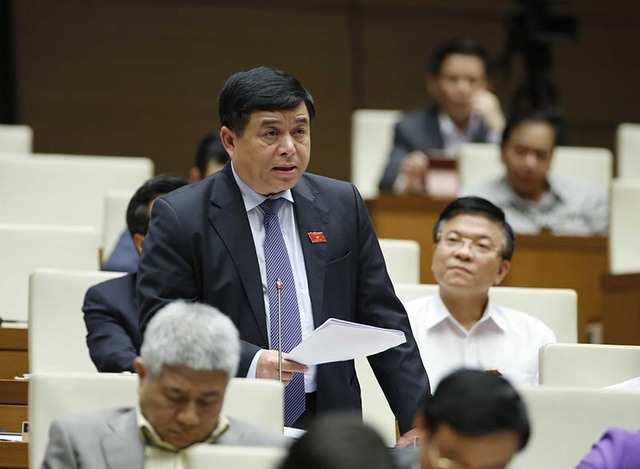.jfif) Opinion
Opinion

Minister of Planning and Investment Nguyễn Chí Dũng spoke to Thời báo Kinh tế Việt Nam (Việt Nam Economic Times) about the five-year economic restructuring plan.
 |
Minister of Planning and Investment Nguyễn Chí Dũng spoke to Thời báo Kinh tế Việt Nam (Việt Nam Economic Times) about the five-year economic restructuring plan.
Is it feasible to raise two thirds of the capital resources required in the next five years (2016-2020) for economic restructuring from the public?
Việt Nam needs about VNĐ10,570 trillion, or some US$480 billion, to implement the plan. It is estimated that one third will come from the State budget while the remaining will be mobilised from other sources. Soon we will come up with a detailed financial plan, for example for public investment in the coming five years, VNĐ2,000 trillion ($96 billion) will be disbursed from the State budget.
We foresee that in the next five years, mobilising additional money from the State will be very difficult as our budget is already very tight. So the only possible solution is to mobilise capital resources from non-state sectors.
In my opinion, two sectors in which we should invest State budgets are credit institutions and State-owned enterprises (SOEs). These are the driving force for our national economic development, particularly for our infrastructure development.
What will the government do to encourage the non-State economic sector to invest in economic restructuring?
The first thing the government has to do is to mobilise public trust in the course of national development. In the past few years, the confidence of the general public and of businesses in the Government’s leadership has gradually been restored with macro economic stabilisation and sound development. Meanwhile, most of the macro economic targets, including the inflation rate, exchange rate and basic interest rate have been brought under control.
The Government has been doing its best to create a favourable, transparent and accountable environment for people and enterprises to invest their money in economic activities.
Here I should reiterate that the Government has done its best and achieved certain positive changes. Together with local governments and other bodies it has improved administrative reform and provided favorable conditions to attract more investors.
Last October, 10,314 new enterprises were opened with a total registered capital of VNĐ81.5 trillion ($3.6 billion), an increase of 28.2 per cent compared with September and a capital increase of 7.1 per cent compared with the previous month.
Generally speaking, in the past 10 months, 91.765 new enterprises were registered with a capital of VNĐ710.6 trillion ($31.6 billion). Also in the same period some 22,486 enterprises resumed their operations – an increase of 38.8 per cent compared with the same period last year. This is eloquent evidence showing that investors have high confidence in our promising economy.
So in the coming five years, will the Government continue to pay great attention to the private economy?
The top priority of the plan is to focus on the development of the private sector while encouraging rational foreign direct investment. The top priority of the 10 main tasks set out by the plan is to improve the business environment and to support the development of private enterprises at the central and local levels.
In the next two years (2017-2018), the Government is determined to step up equitisation of State-owned enterprises (SOEs), divest State investment and restructure the list of public investments and State assets.
Public sectors using State budgets and the financial markets are also included in the restructuring process.—VNS




